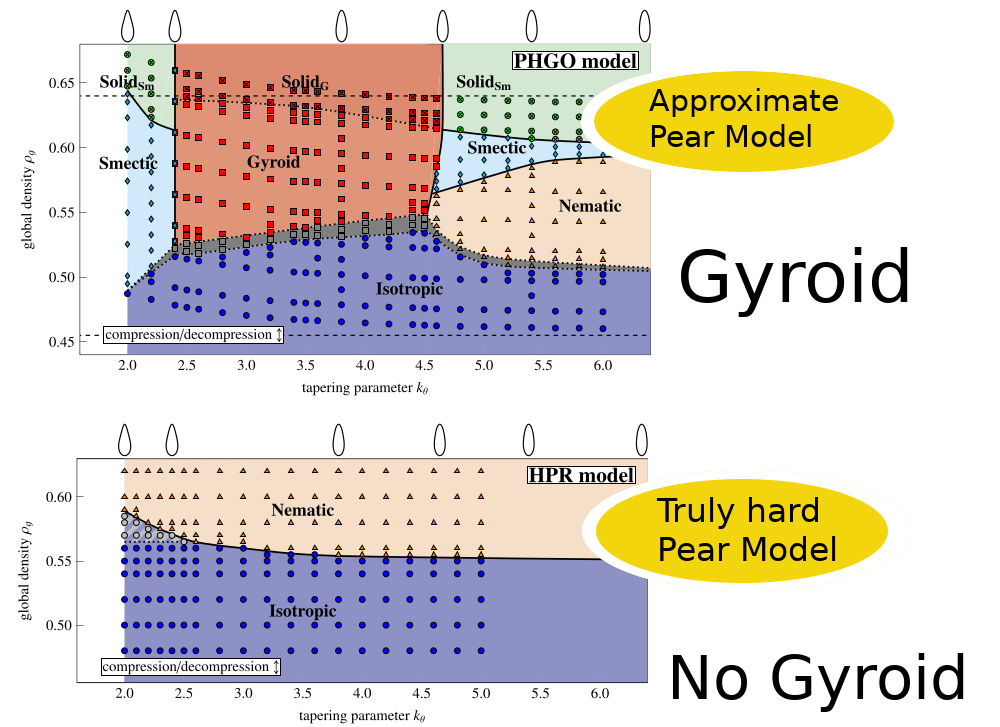“The trouble with optimists is that they don’t do well in a pear‐shaped world.”

Lucy Kellaway’s quote is one way to look at Philipp Schönhöfer’s most recent paper on colloidal pear-shaped particles. Vincent Van Gogh’s quote “Great things are done by a series of small things brought together” is another…
Very happy that Philipp Schönhöfer’s final two articles from his PhD are out now, in Journal of Chemical Physics.
- P.A. Schönhöfer, M. Marechal, D. Cleaver, and G.E. Schröder-Turk, “Self-assembly and entropic effects in pear-shaped colloid systems: I. Shape sensitivity of bilayer phases in colloidal pear-shaped particle systems”, arxiv preprint, J. Chem. Phys. 153, 034903 (2020)
- P.A. Schönhöfer, M. Marechal, D. Cleaver, and G.E. Schröder-Turk, “Self-assembly and entropic effects in pear-shaped colloid systems: II. Depletion attraction of pear-shaped particles in a hard sphere solvent”, arxiv preprint, J. Chem. Phys. 153, 034904 (2020)
The first article clarifies when, and when not, pear-shaped particles spontaneously aggregate into the double gyroid geometry. The second article shows how pear-shaped particles huddle up when put into a bath of hard spheres, from a depletion effect.
When we started this study, we were a little (too) optimistic that a computationally simple approximation of pear-shaped particles was good enough to model truly hard pears. Over the years of his PhD, Philipp taught us that lesson. The trouble with optimists… (But, don’t be mistaken, real colloids are not really hard either).

Thanks to Doug Cleaver, Matthieu Marechal and Philipp Schönhöfer for a lovely collaboration, and to Klaus Mecke for support and advice, and to Jacob Kirkensgaard (Copenhagen) and Tommy Nylander (Lund) for their hospitality.